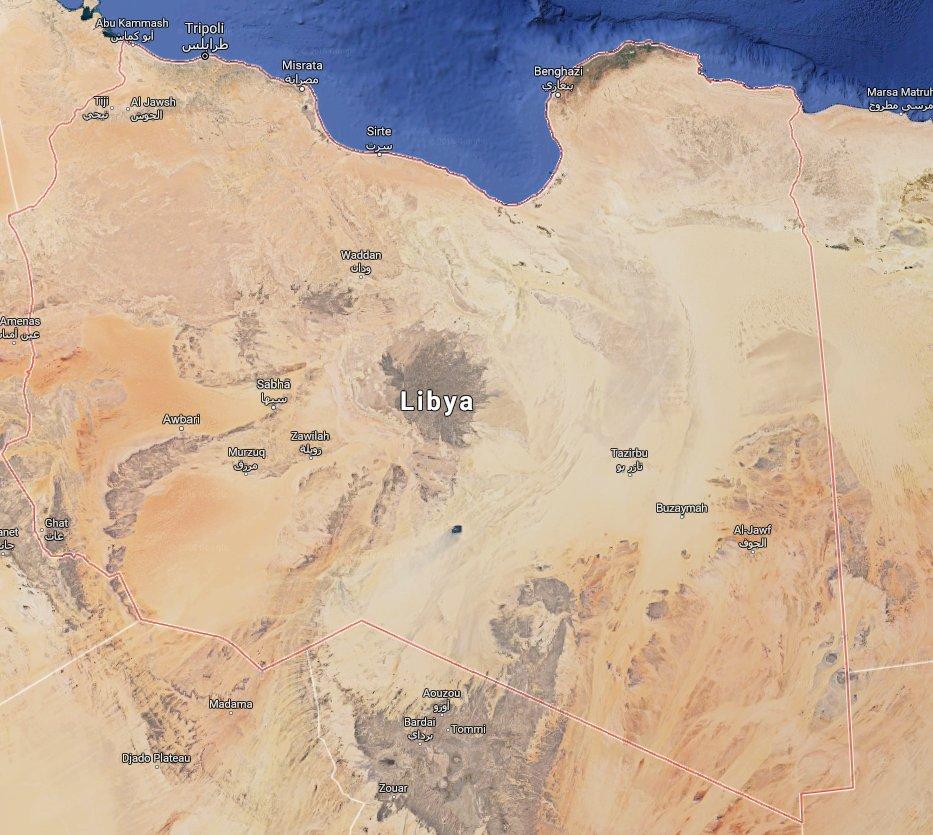
New Libyan Oil Wealth Fund Chief Talks Reform, Transparency
Oil and the revenues it brings shape Libya’s economic and political landscape. The Libyan Investment Authority (LIA) and its management, therefore, are of central focus for good governance advocates inside and outside the country.
The LIA manages assets worth more than USD 64 billion, invested in 55 countries. Over the past two years, its organizational structure has fractured, leading to a split into two parallel authorities: one based in Malta, the other in Tripoli. Country observers see this as an entirely politicized development that disregards the LIA’s role as guardian of the Libyan people’s money.
Data on LIA management and performance is scarce. As an ongoing exercise, NRGI is carrying out a “health test” on the authority. In addition to the LIA's core investments, NRGI is reviewing the authority's five subsidiaries: the Libyan Arab Foreign Investment Company (LAFICO); the Libyan African Investment Company (LAICO); Libyan African Investment Portfolio (LAP); the Long-Term Investment Portfolio (LTP); and the Libyan Local Investment and Development Fund (LLIDF). NRGI has concluded that the LIA is non-compliant with the Santiago Principles and meets just four of 16 regulatory standards essential for promoting good sovereign wealth fund governance.
In 2012, the government expressed interest in reforming the LIA’s structure. As the political tug of war over the authority continued, however, possible changes were abandoned. In an effort to reunite various sovereign institutions such as the National Oil Corporation, the Central Bank of Libya and LIA, the internationally recognized Presidential Council (PC) in August appointed a steering committee to run LIA on an interim basis, with Dr. Ali Mahmoud acting as chairman.
In September 2016, I spoke with Mahmoud to ask about some of NRGI’s findings thus far, and what plans he and his committee have to improve the LIA’s governance.
Yusser AL-Gayed: Is it safe to assume that you and the LIA steering committee have complete control of the LIA at this point?Ali Mahmoud: While there are still some administrative procedures to follow, we are going to great lengths to build bridges across the various divisions that had occurred over the past two years. On 25 September, we met with [LIA] subsidiaries from all over Libya and abroad and we have started to reduce the institutional and political gaps with the aim of uniting the subsidiaries. We have, however, already come to a preliminary agreement with all parties and made an official announcement.
What do you see as the biggest challenge that faces Libya’s sovereign wealth fund?
Preserving the money of the Libyan people. Unfortunately, frozen assets lose value. But there is a tradeoff between that and assets being seized by political factions and used either to fuel further conflict or to finance wasteful recurrent expenditure items, such as salaries and subsidies which isn’t what the LIA was established to do.
Our initial findings indicate that the LIA is compliant on withdrawal rules, revenue deposits, public disclosure of audit reports and coordinating with other government agencies in managing funds. This leaves a lot to be desired—LIA lacks significant investment standards, operational and management standards and last, but not least, transparency and accountability standards.
Do you think that given the political situation today, you and your committee will be able to manage positive change in a year’s time?
Governance of the LIA is stipulated in law 13 of 2010. We understand that there are probably violations of the law due to the political divisions in Libya today. Some also argue that the law needs to be revisited. This would require legislative changes that probably aren’t feasible in the current climate. We are very much aware of the internal failings of LIA. These areas are operational, investment-related and managerial in nature. Transparency and accountability will most definitely be a priority for us over the next year. Libyans need to know how their money is managed, where it is invested and by whom.
During NRGI’s sixth Transparency Working Group meeting in Libya last November, we discussed how the LIA and its subsidiaries could help bring stability to Libya. Do you think there is merit in using the LLIDF as a stabilization facility to provide the Presidential Council with resources to develop desperately needed infrastructure?
While there is merit in this, the LLIDF’s mandate is to diversify the economic base of the country and provide jobs. Ultimately, it is an investment vehicle and is profit-driven. We are exploring mechanisms for this to work—through public-private partnerships, for example—but we do think that the LLIDF’s investment portfolio should take into account wider stabilization efforts that meet the immediate needs of the country.
NRGI is assisting Libya to improve governance throughout the natural resource value chain. NRGI will host a 26 October workshop to present its findings to the LIA steering committee and other stakeholders.
Yusser AL-Gayed is NRGI’s senior advisor for the Middle East and North Africa. He is also a core governments functions advisor in governance and fragility at the United Nations Development Programme.

